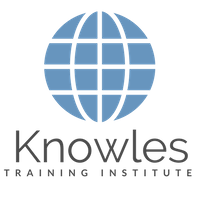Skip to content
AssociationIntern1bksiuevej76kHhK
Association
Neural Network Weaving: 10 Techniques for Enhanced Learning and Memory Associations
- Linking: Establish strong associations between new information and existing knowledge through linking strategies. Associative linking enhances memory retrieval by weaving together interconnected neural networks.
- Visual Mind Maps: Utilize advanced visual mind mapping techniques to visually organize and connect complex ideas or concepts. Visual mind mapping mastery promotes comprehension, memory consolidation, and effective recall.
- Conceptual Synthesis: Integrate new information with pre existing concepts to form a holistic understanding. Conceptual synthesis strengthens memory associations and facilitates the retrieval of interconnected ideas.
- Analogical Connections: Foster analogical thinking to establish connections between unfamiliar concepts and familiar ones. Analogical connections enhance comprehension and strengthen memory recall through relatable associations.
- Narrative Encoding: Employ narrative techniques to encode the information into compelling stories or narratives. Narrative encoding provides a context-rich framework that aids memory encoding and facilitates recall through story-based associations.
- Mnemonic Mastery: Harness the power of advanced mnemonic techniques such as memory palaces, method of loci, or peg systems to create highly memorable associations between information and cues. Mnemonic mastery boosts memory retention and retrieval.
- Contextual Anchoring: Embed the information within specific real-life contexts or scenarios. Contextual anchoring strengthens memory connections by associating the information with relevant experiences and environments.
- Interdisciplinary Fusion: Forge interdisciplinary connections by integrating knowledge and concepts from various fields. Interdisciplinary fusion promotes a deeper understanding, encourages critical thinking, and strengthens memory associations.
- Reflective Elaboration: Engage in reflective practices that involve elaborating on the information, making connections, and relating it to personal experiences. Reflective elaboration reinforces and deepens memory associations.
- Multisensory Integration: Incorporate multiple sensory modalities, such as visual, auditory, kinesthetic, and olfactory cues, to enhance memory encoding and retrieval. Multisensory integration creates a rich tapestry of associations, strengthening memory retention.
Page load link



